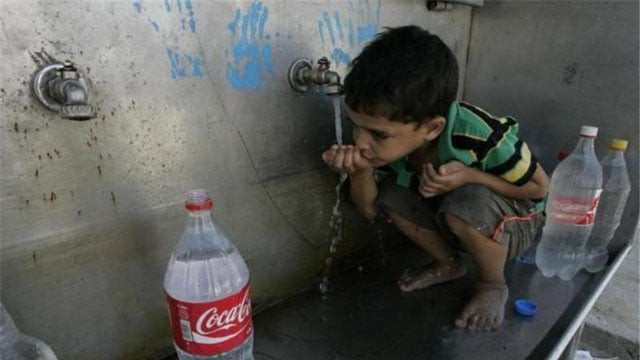27k children’ die of waterborne diseases
The science minister warned that the country was fast sliding towards water scarcity

Minister for Science and Technology Shibli Faraz set off the alarm bells on Thursday when he admitted that Pakistan was facing serious water issues and that not only the country was heading towards water scarcity but around 27,000 children are annually dying because of water-related diseases.
Expressing his views on existing and emerging water challenges in Pakistan, the science minister minced no words in describing the grim picture of water issues and scarcity amid an ongoing conflict over water distribution between the centre and the provinces.
Expressing that the “climate change phenomenon has put Pakistan amongst the most vulnerable countries in the world,” the minister said that as a nation, “We are heading towards water scarcity.”
“A sign of this alarming situation is that about 27,000 children are dying annually due to water-borne diseases,” he revealed.
In March 2019, the UNICEF chief had said that more children were killed by unsafe water than the bullets. He said that 85,700 children under-15 die from diarrhoea linked to unsafe water, sanitation and hygiene facilities every year, compared with 30,900 from conflict.
“Despite these natural resources, we are facing serious water issues and governance challenges,” Faraz said while addressing the Pakistan Water Conference at Pakistan Council of Research in Water Resources (PCRWR).
The admission of water scarcity has come after a minister in Sindh Assembly raised alarm over water shortage in the province and PPP Chairman Bilawal Bhutto-Zardari strongly criticised the federal government for “reducing Sindh’s water share alleging theft of water through canals in Punjab”.
Reportedly, the Sindh assembly was told that there was an acute shortage of water in the province as it was not getting its due share as per the Water Accord 1991 and it could also lead to a water crisis in Karachi and other parts of the province if the situation persisted. Later, the Indus River System Authority (Irsa) had increased water supply to the province and asked the PPP leadership to refrain from politicising a technical matter.
Highlighting that access to sufficient freshwater has been categorised as the base of socio-economic development of a country, Faraz said that a pressing water resource challenge is the unavailability of an integrated water resources data warehouse and open data sharing policy.
Commenting on the importance of water towards social and economic development, he said, access to sufficient freshwater has been categorized as the base of socio-economic development of a country.
Upon joining as science minister, he shared that he has taken up one-point agenda for water resources: “translate research into public benefit” with the help of scientific data and smart technologies.
Revealing that numerous organizations, including national and international research institutes, federal and provincial government organizations, international development partners, NGOs and Academia were working in various areas of water resources management, he said, “policies procedures and practices in water management sector are uninformed by contemporary knowledge” even then.
Consequently, he said, the old water resources challenges remain and new water resources issues keeping emerging, adding that it is crucial to address the complex issues with quality and timely research.
Declaring that the issues were close to his heart, Faraz highlighted that the Himalayan glaciers in the north are the largest frozen water reserves while fertile alluvial plains of Punjab and Sindh are irrigated by one of the largest contiguous irrigation systems of the world – the system contributes into the developing 4th largest groundwater aquifer in the world, after China, India and USA.
Faraz said that he has tasked PCRWR to bring research into action in Islamabad as a pilot project, saying PCRWR and CDA have signed a Program of Cooperation for artificial groundwater recharge and development of an evidence-based groundwater regulatory framework for Islamabad within 10 days.
Giving few examples of “getting the science right”, he said that it was time to gift the next generations a “Water Secure Pakistan”.



















COMMENTS
Comments are moderated and generally will be posted if they are on-topic and not abusive.
For more information, please see our Comments FAQ